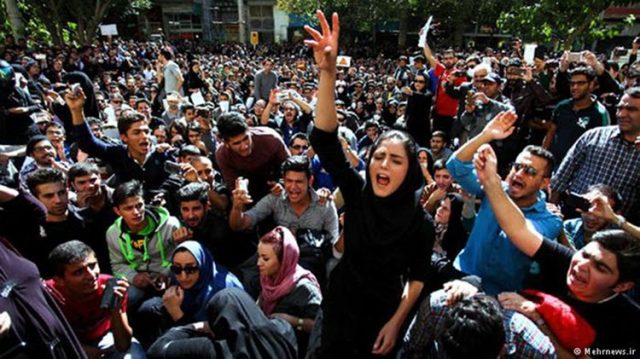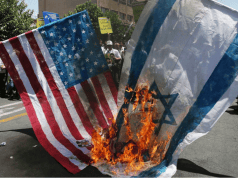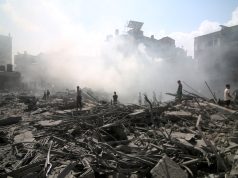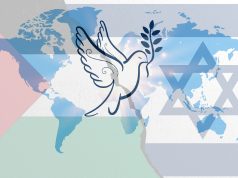.
By Rachel Avraham
As we speak, the human rights situation is deteriorating in the Islamic Republic of Iran amid protests aimed to topple the mullah’s regime following the horrific killing of Mahsa Amini, a young Kurdish girl who was killed in Iranian custody for refusing to wear hijab. Since then, tens of thousands have been arrested and tortured, more than 20 journalists have been detained, and public trials are expected to be held for 1,000 people that were involved in the protests. Considering Iran’s threat to America, the State of Israel and the entire free world, the United States should be actively working to support the protesters and encourage regime change in Iran right now.
Salah Bayaziddi, the Washington, DC representative of the Komala Party of Iranian Kurdistan, stated: “My opinion for years is that the US sees how violent Iran deals with their civilians for the last 40 years. For the last 40 days, we have seen the horrible pictures and videos, showing how they indiscriminately shoot their people. Half of the people being killed are from ethnic minorities, such as Kurds and Baloch. I am not saying that the US should strike Iran, but they should at least talk to the opposition groups.”
Yet Bayaziddi said the US is presently not doing this: “They just want to talk to Iranian Americans. But this is not enough. They should speak to the opposition groups. Look at how things are unfolding for the last few months. They are talking about putting the IRGC on the terror list. Trudeau was the first western leader to speak about regime change in Iran. Looking how fast things are unfolding, I think they should have a policy change and at least talk to the opposition groups at this stage.”
Pastor Saeed Abedini, an Iranian Christian leader in the House Church Movement, concurred: “I am very disappointed about western policies regarding the human rights situation in Iran. Last year, in bloody street protests which turned into a revolution, more than 2,000 people were shot dead in the heart and head. They were mostly minors and virgin girls. More than 20,000 people have been arrested including my cousins Mohammed and Nazarin, and all of them are enduring terrible physical, emotional and sexual torture. Some of them will have been executed by the time you read this article. Others were raped for weeks on end. However, while the West verbally condemns this, they never take actions except imposing more rotten sanctions which put the pressure on the weak and broken people of Iran, not the mullahs, who are enjoying with their billions of dollars a luxurious life in Beverly Hill, London, Canada and Australia.”
He continued: “Why does the west not arm the street protesters instead of leaving them to be shot in the head? Arming the street protests will help ensure the Wests’ security and peace in the Middle East. The time has come to stand with the Iranian people and to help the Iranian people to get rid of this bloody regime, to protest the weak people of Iran and the world from Iranian sponsored terrorism.
“If we truly believe in humanity and human rights, the time has come to arm the people of Iran. Everyone should know the ayatollah’s regime won’t collapse without military support. The people of Iran must be armed in order to finish the job. Otherwise, the people of Iran won’t survive against these terrorists backed by the Iranian Revolution Guards and thousands of lives will be shed in vain.
“The West should ask what kind of world they want to see passed onto their children and grandchildren. This regime should be finished before they can truly harm the West.”
Dr. Reza Parchizadeh, an Iranian political theorists and security analyst, said this: “Washington must intervene to help the people of Iran to topple the Islamist regime and establish democracy because it is in the best interests of the US and her regional allies. If a pro-Western democracy comes to power in Iran, it will shut down the current regime’s global terror campaign, cause Russia and China to cease cooperating against the West, and make it easier to make peace between Israel and the Arabs, thus finally stabilizing a perennially unstable Middle East.”





